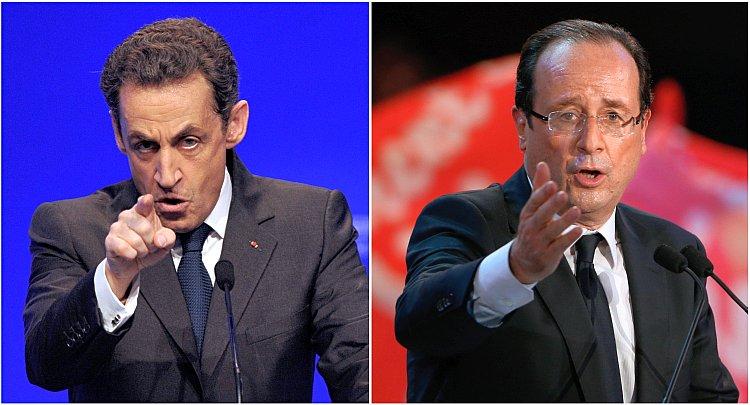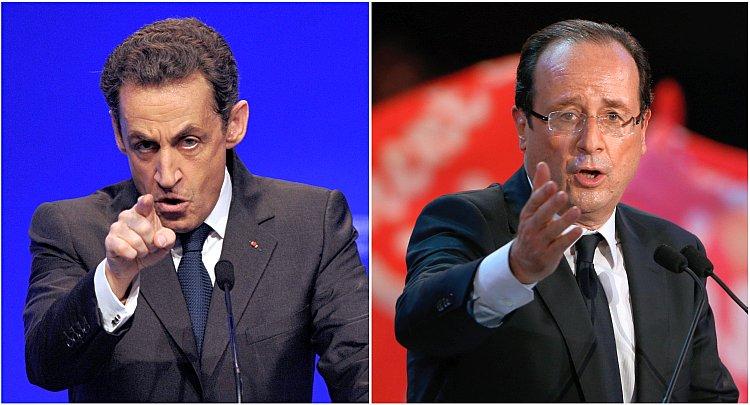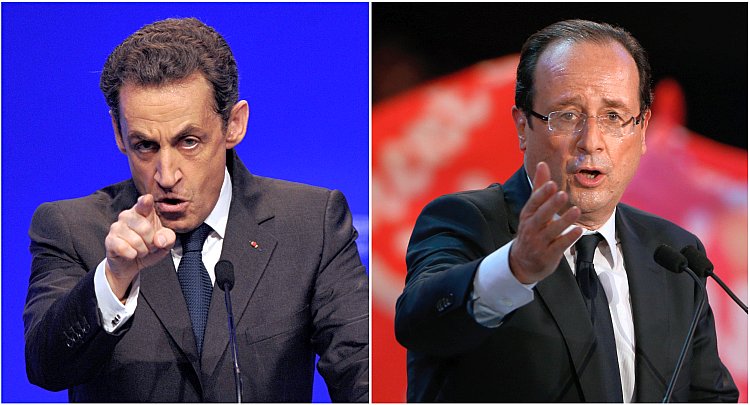PARIS—The final round of voting, that will decide the French president for the next five years, takes place Sunday May 6, and if the latest opinion polls are correct, Conservative incumbent Nicolas Sarkozy could lose his job to Socialist François Hollande.
Current polls indicate Sarkozy will be defeated by Hollande, who enjoys a 7 to 10 point lead. The televised debate on May 2, the only one in the campaign, was seen as a last chance for Sarkozy to reverse the trend and compensate for his image deficit accumulated over the last five years. Sarkozy indeed faces what is now called in France “anti-sarkozysm”—a trend that is predicted to drive voters to cast their ballot for Hollande, not so much to support him, but rather to unseat the current President.
Since the first round of voting on April 22, and the historically high showing (18 percent of votes) of far-right Front National candidate, Marine Le Pen, Sarkozy has chosen to veer away from an expected “centrist” moderate tone to one aimed at appealing to far-right voters. He has adopted populist, nationalist stances on immigration control, so-called “true work” (employment) and family values, while railing against “intermediate bodies” of labour unions who, he said, were united “behind the red flag” of their (left-wing) party, not behind France.
The hard turn right, however, was so sudden, that it has irritated key members of his conservative party (UMP), including Prime Minister Francois Fillon and research Minister Laurent Wauquiez who both distanced themselves from Sarkozy.
Even among far-right voters, the move registered little enthusiasm for Sarkozy, with polls indicating responses varying from mild and neutral, to negative. The poor results highlight the lack of trust Le Pen’s National Front voters, mostly located in economically more depressed northern and eastern regions of France, have in Sarkozy after he failed to keep election promises made in the 2007 campaign.
Sarkozy took care not to highlight these issues during the three-hour TV debate which revealed no surprises and was essentially a long reiteration of each candidate’s campaign themes.
Hollande repeatedly pointed to the “failure” of Sarkozy’s presidency, noting unfulfilled promises while offering an option to French citizens for “real change.” He said he would be a “respectful” president and close to the citizens, and attacked Sarkozy for having concentrated too much power in his own hands while promoting friends and relatives to key positions.
In response, Sarkozy talked of the strength of his reform program and accused Hollande of an absence of governing experience and for “planning over-expenditures.” Sarkozy’s conclusion was that France had crossed the dire straits of an economic crisis but needed the consistency and strength of an experience leader.
Sarkozy and Hollande appeared to fared equal in the debate, which is good news for Hollande and bad new for Sarkozy: Hollande proved he was an equal match for Sarkozy, who is a renowned and experienced debater. Sarkozy on the other hand, needed to register a resolute win to really make a difference to his campaign. He didn’t and it is now largely anticipated he will lose his presidency next Sunday.







